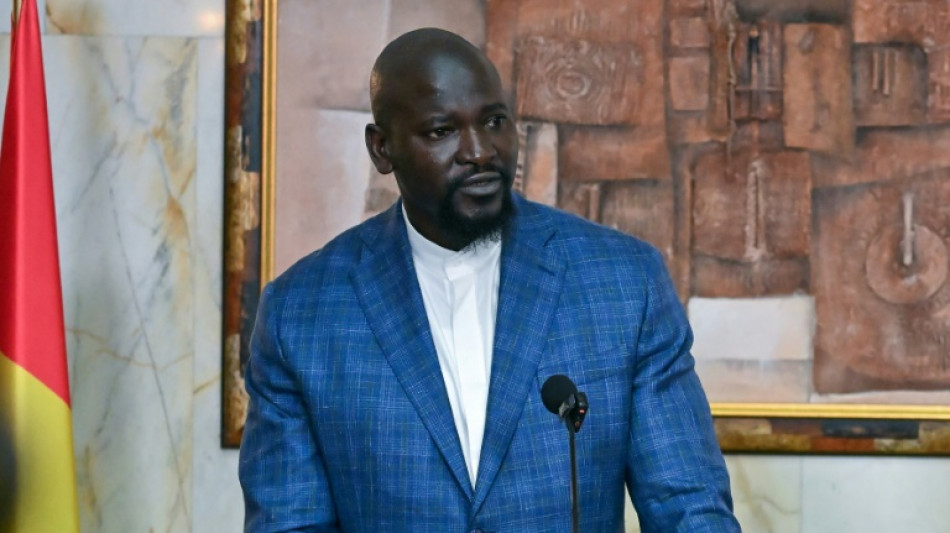
Guinea's junta suspends three main political parties

Guinea's junta has suspended three main political parties -- including that of former president Alpha Conde -- for three months, ahead of an electoral campaign for a rewrite of the constitution, according to an order seen by AFP on Saturday.
The move came as the west African nation readied for protests called by the main parties and civil society groups from September 5 to condemn what they see as a power grab by the head of the junta, General Mamadi Doumbouya.
The opposition has condemned plans for a September 21 referendum on revising the constitution -- a vote organised by Doumbouya, who took power in 2021 when a coup toppled Conde, who had been president for 10 years.
Doumbouya's military-run government has banned all demonstrations since 2022, and has arrested, prosecuted or pushed into exile several opposition leaders.
As well as Conde's Rally of the Guinean People, the new order suspends the Union of Democratic Forces of Guinea, led by former prime minister Cellou Dalein Diallo, and the Party of Renewal and Progress.
"These parties have not fulfilled the obligations required of them," the order stated.
It did not detail what the unfulfilled obligations were, but set a three-month deadline for the parties to correct them or face additional sanctions.
In a separate order read on state television late Friday, the junta also declared that the start of the election campaign period for the constitutional referendum had been pushed back a week, to August 31.
- Opposition crackdown -
The parties' suspension comes after Guinea's military leaders said in January the political arena needs to be "sanitised".
In March, the junta announced the suspension of 28 political parties and the dissolution of 27 others, saying they had failed to meet the requirement to provide bank account details and hold a regular congress.
Conde's party was among those suspended then, but was later allowed to resume activity.
Guinea's junta has faced condemnation from international rights groups that accuse it of cracking down on political dissent and independent media.
The draft constitution, presented to the junta leader in June, opens the way to a return to civilian rule.
However, it does not make clear whether Doumbouya could stand as a candidate in the next presidential election.
A "transition charter" drawn up by the junta shortly after the coup had stipulated that none of its leaders, government members of heads of institutions would be able to stand in elections.
The adoption of a new constitution could do away with that restriction, in a country that has spent decades ruled by dictatorial governments.
D.Czajkowski--GL

 London
London

 Manchester
Manchester
 Glasgow
Glasgow
 Dublin
Dublin
 Belfast
Belfast
 Washington
Washington
 Denver
Denver
 Atlanta
Atlanta
 Dallas
Dallas
 Houston Texas
Houston Texas
 New Orleans
New Orleans
 El Paso
El Paso
 Phoenix
Phoenix
 Los Angeles
Los Angeles



